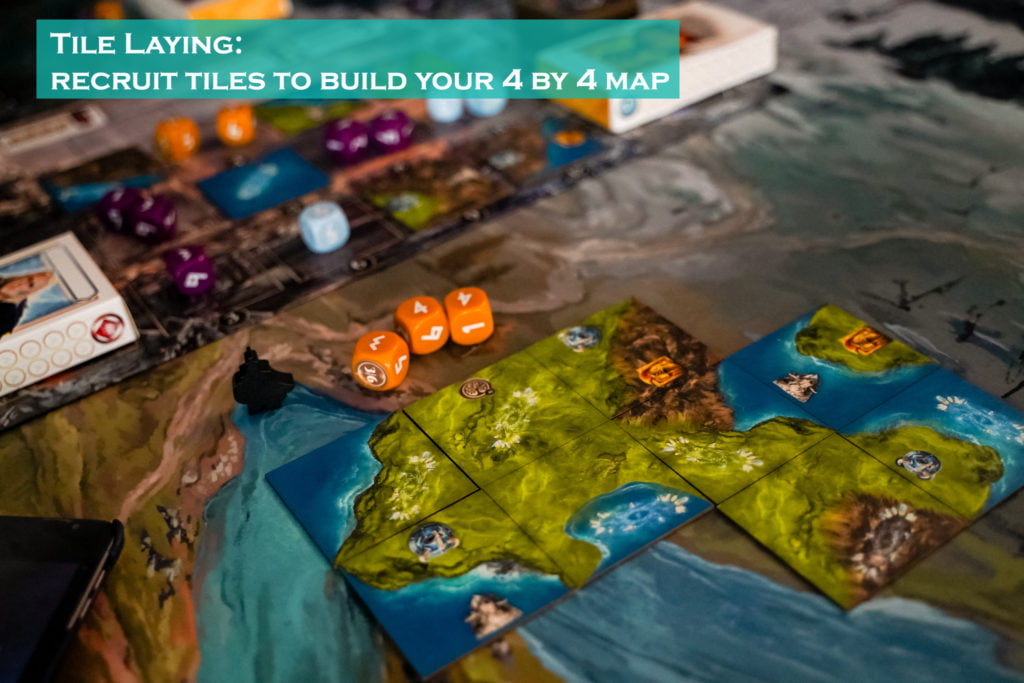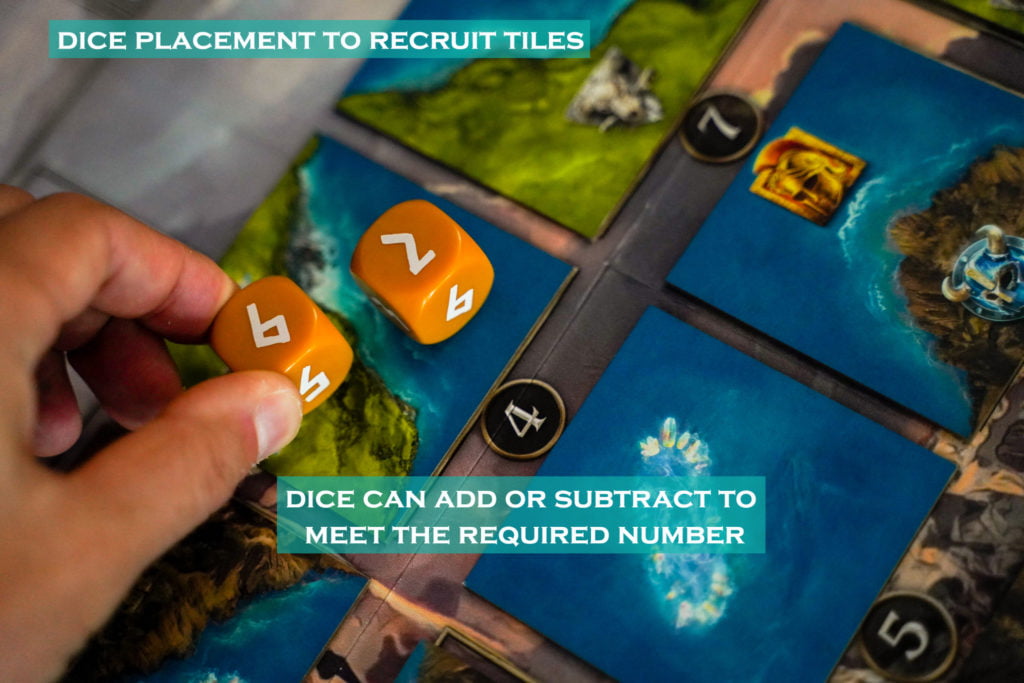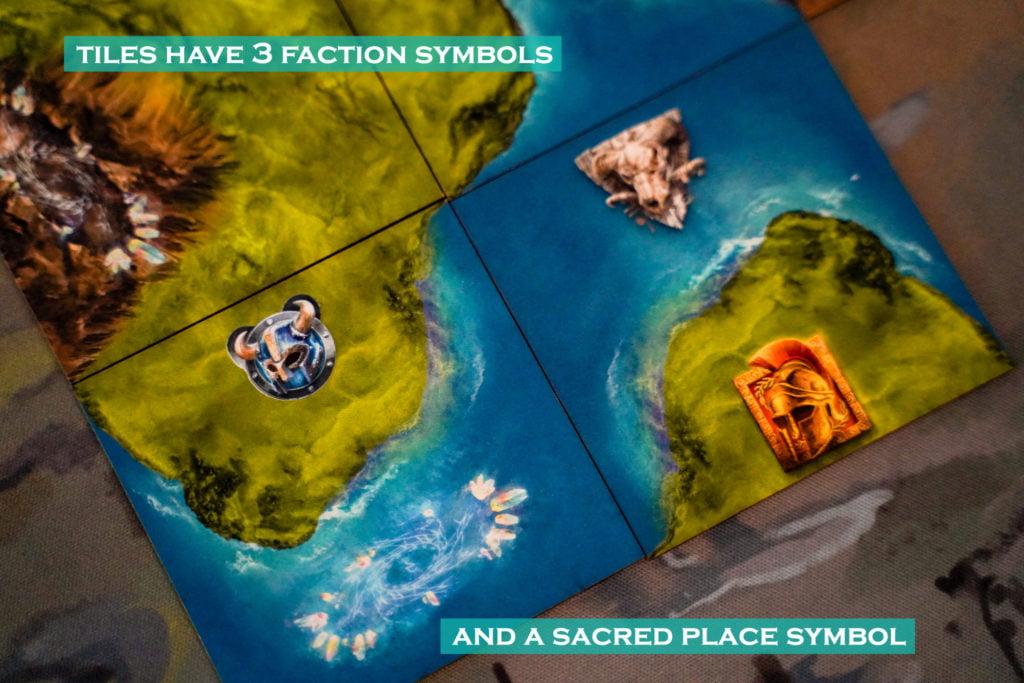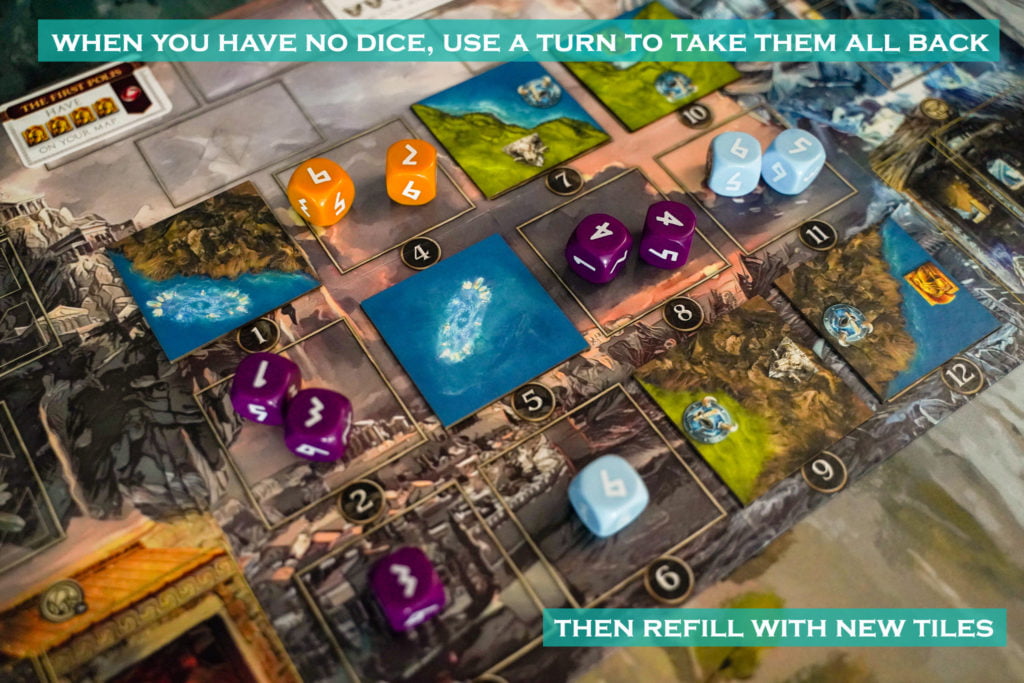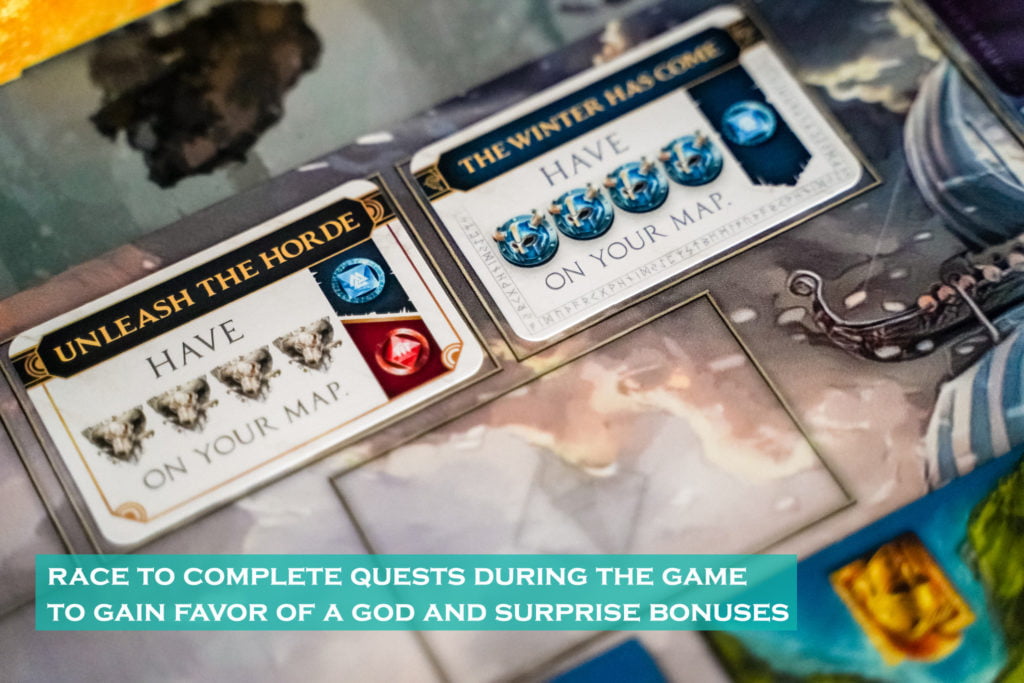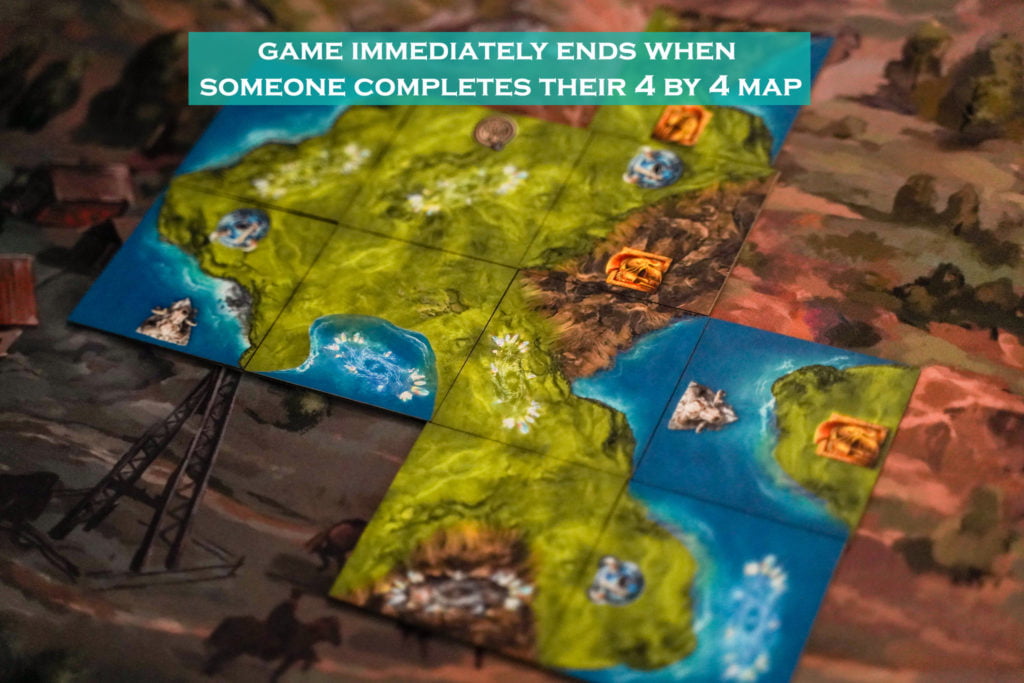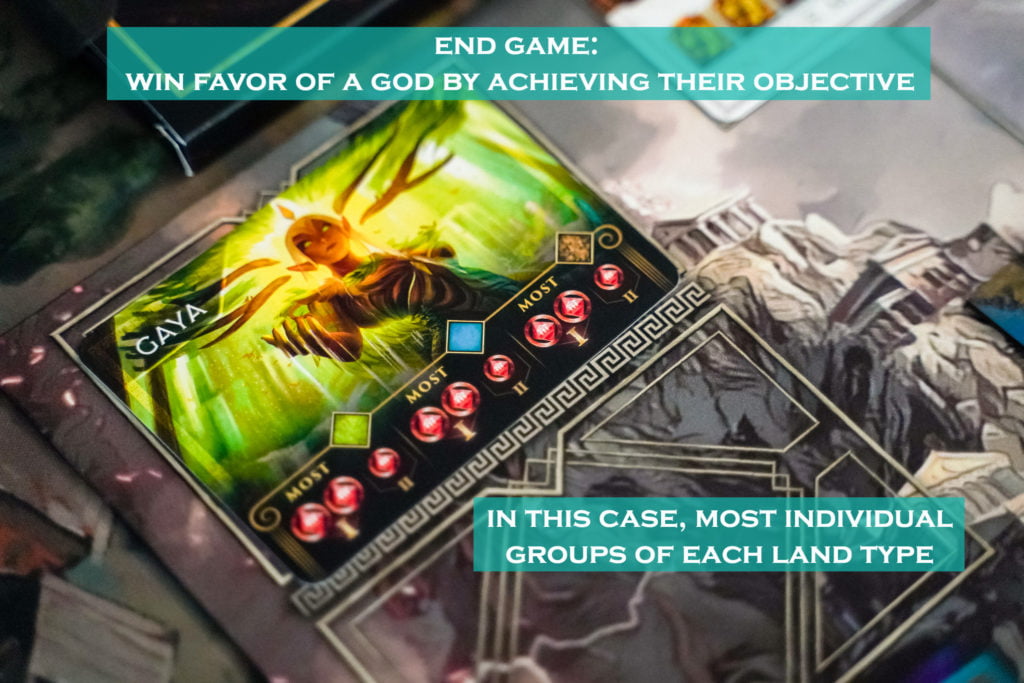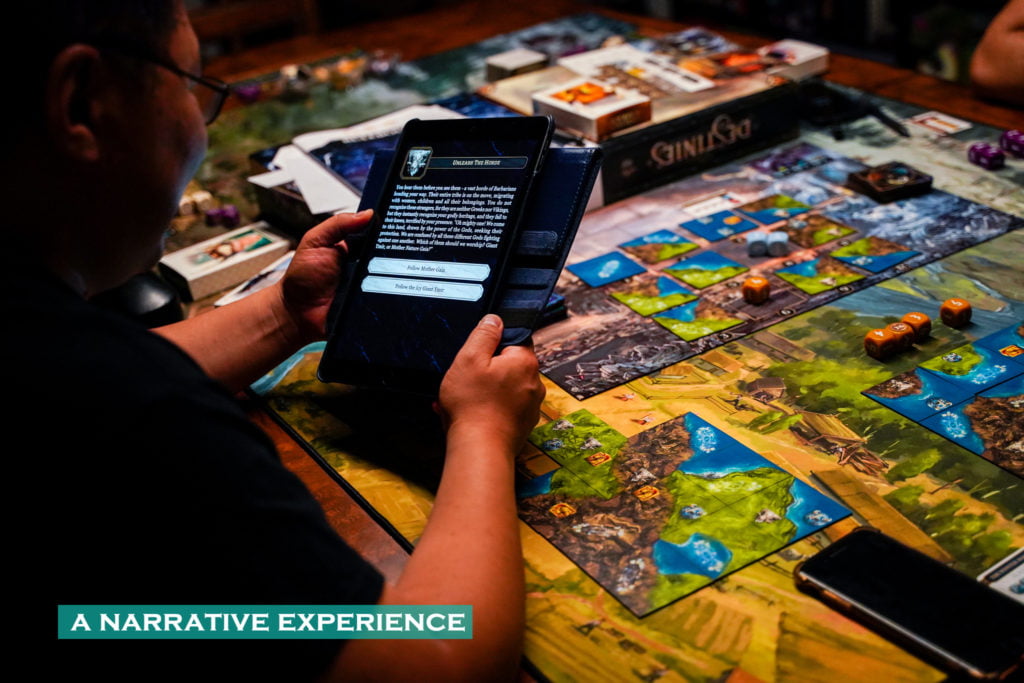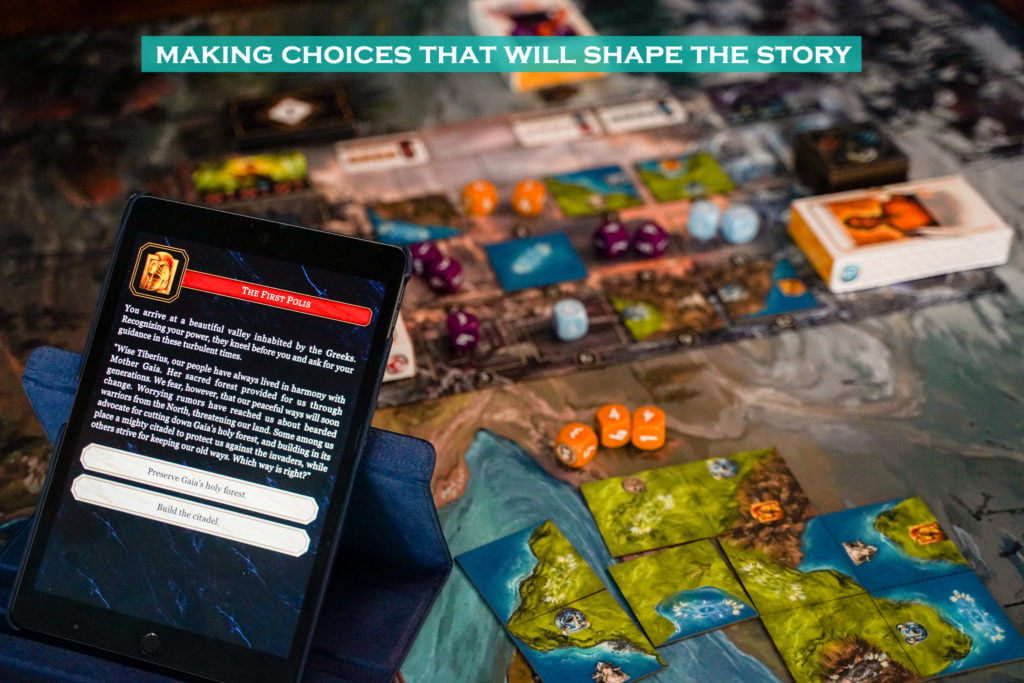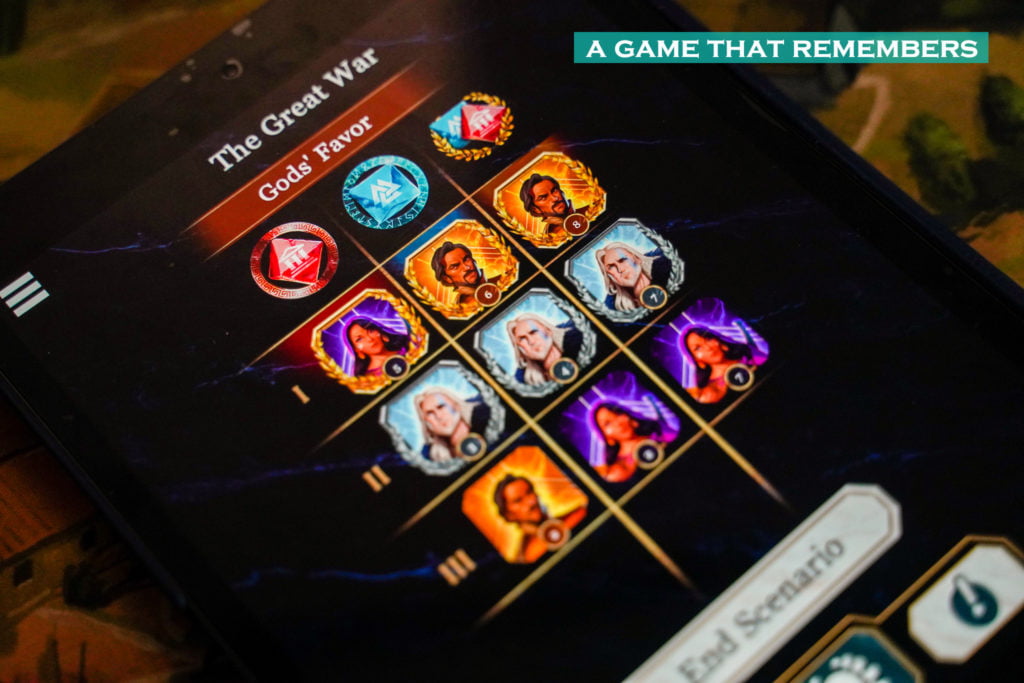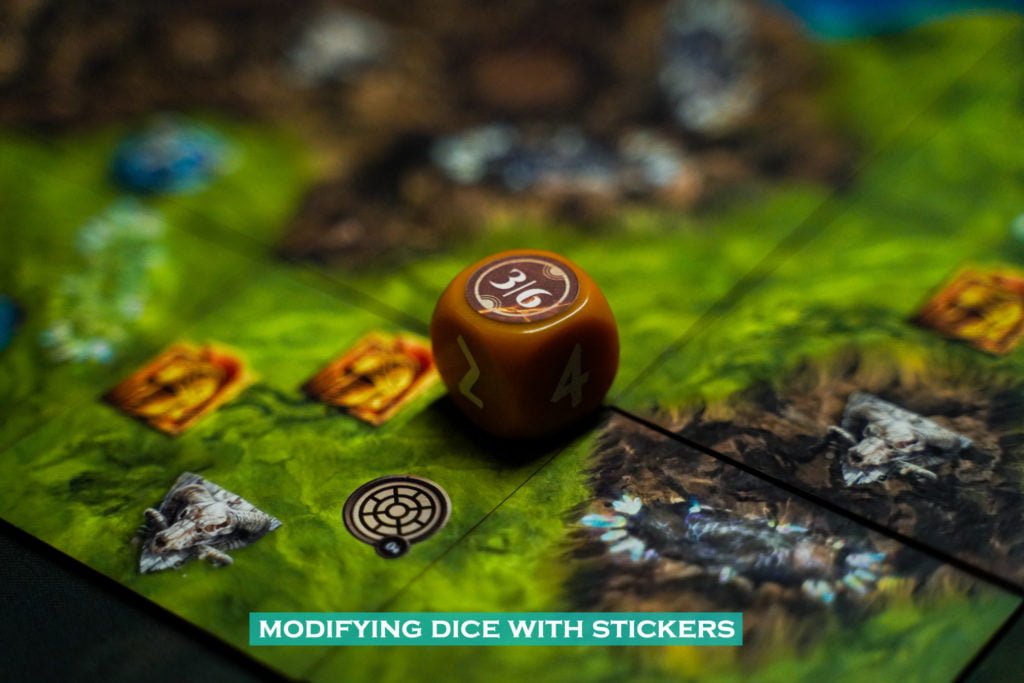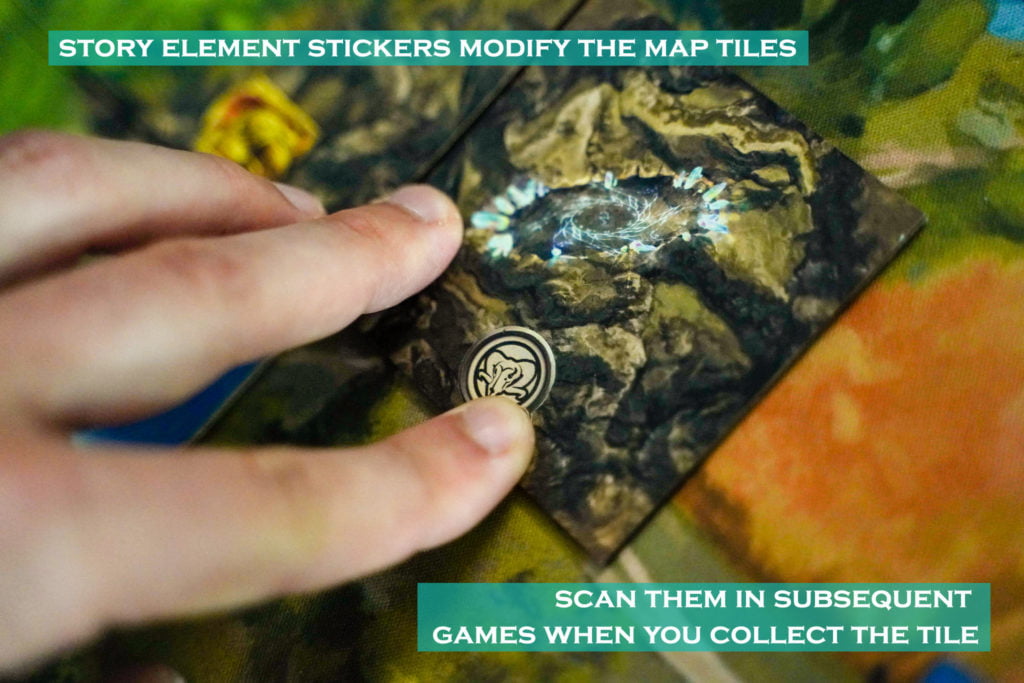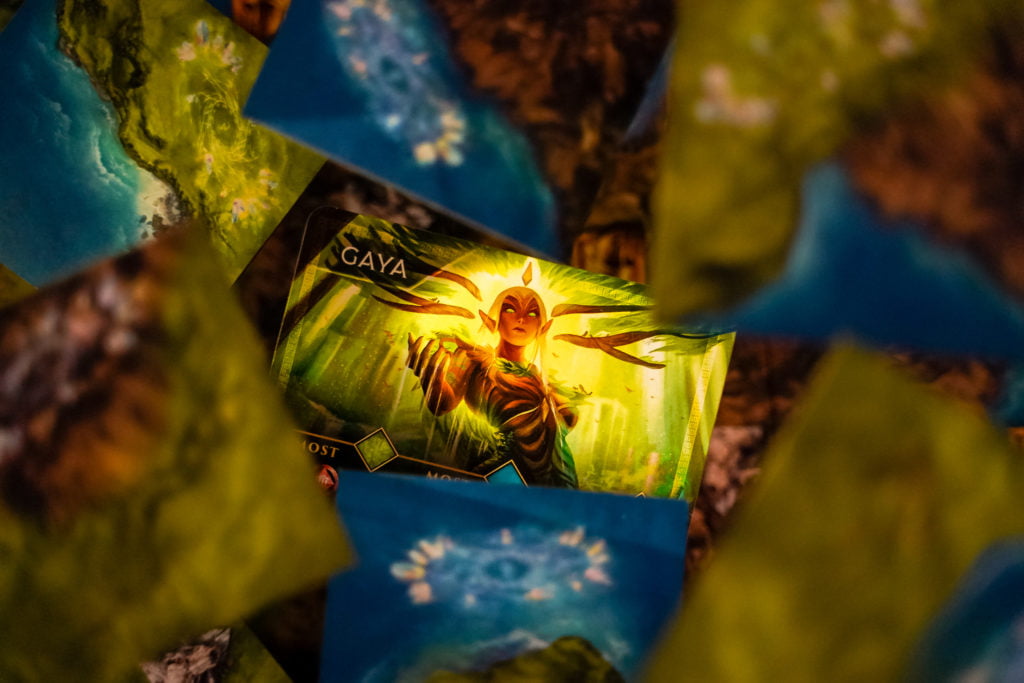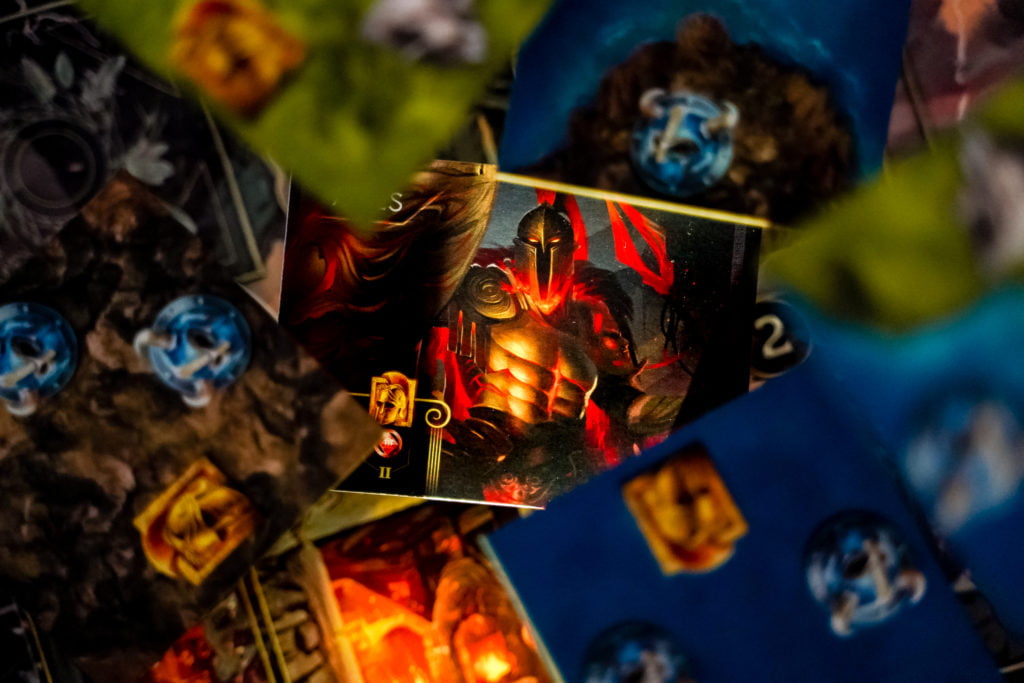Divinus
Divinus is the newest game from Lucky Duck Games coming to Gamefound on July 27th. We were lucky enough to get a demo prototype to try out the system and are happy to share it with you today. This post is, for the most part, spoiler-free regarding the legacy aspect of the game. We only show what is given to start your first game and to understand how the game plays.
Quick Overview
Divinus has you playing a demi-god (half god half human, like Percy Jackson) in the middle of a clash between two God-like pantheons, the Greek and Norse Gods. In each of the 12 campaign scenarios you seek to gain favor in the eyes of one (or both!) Gods. Each God in play has certain conditions they look for and you will score based on those conditions at the end of the game.
In it’s essence it is a tile-laying game that has you building a 4×4 grid of tiles depicting a map of 3 terrain types (seas, mountains and grassland). You collect tiles by placing out your dice (you have a number of dice determined by player count). To take a tile you must place dice that add or subtract to the number of the tile you want. When you have no more dice you must spend a turn to take them all back (and replace the spots with new tiles).
That is the basics of the gameplay mechanic! Set out dice to take tiles and build your map. That’s it. First to complete their 4×4 map ends the game immediately. Then you check the condition the Gods want (for example, largest size of each land type) and mark how much favor you have gain with each God.
There are also quests, that give favor to the player who first completes them. So there is a bit of a race for certain tiles.
The tiles have icons on them that represent 3 different factions, which can come into play as well. In the first scenario the quest is to be the first to get 4 identical faction icons on your map.
Super simple gameplay, but don’t be fooled, it evolves with each game, adding legacy elements that changes not only components, but also game rules. Not to mention a very strong narrative aspect with the app, which we discuss next.
App and Legacy Implementation
I wouldn’t say this post is 100% spoiler free because I will talk about how the game mechanics evolve, which I think is important to know if the game might be a good fit for you. However, I will not discuss story elements and detailed surprises. I will stick to how the game play evolves.
The App provides a strong narrative element to the game, in similar fashion to their previous popular games like Chronicles of Crime and Destinies. Those games were relatively simple in game play, but the storytelling aspect really carried it’s success.
This is an App that remembers. Not just your points for each game, but every decision you make. The narrative provides many “choose your path” options, like a choose your own adventure book, and your choices will shape the story to come and what decisions occur in the future. It refers to your character by name and certain non-player characters will recognize you if you have talked to them before.
As a legacy game it provides you with ways to change the game. Right at the start you get to apply a sticker than changes the face of a die (no spoiler, it’s the first thing you do in the first game). You can already imagine how it will provide more opportunities to do so. You choices in the story will instruct you to add stickers to maps. In future games, when you draw those tiles you will scan them and the story will continue in ways that may be different if you originally applied that sticker or if it was someone else. Even the quests may provide awards like special character abilities. There are many different ways the game may change and with only two scenarios in the prototype we have already seen many legacy elements.
Initial Impressions
When first reading the rules, the game mechanics sounded too simple. And it was. Using dice to draft tiles to build a map. Nothing very “wow” about it. However if I think about previous games from Lucky Duck, such as Chronicles of Crime and Destinies, their base game mechanics are also very basic. It’s the narrative that carries them. CofC is all scan and read. There isn’t too much of a “game” but the story is strong. It appeals to many, but actually didn’t appeal to me very much. I wanted a “game” in there. Destinies then added a game to the narrative and I loved it. It’s not a complex game, you gain experience to upgrade you skills and do many many skill checks. It was a small “game” with a huge narrative experience.
Divinus adds more “game”. More than just D&D-esque skill checks. It now adds some light euro aspects, feeling very much like Carcassonne or Ilse of Skye. I like it, but I still wanted more “game”. The second scenario added more. More ways to mitigate dice. Ways to earn special player abilities. I still feel like I want more, but that may be the heavy euro-gamer in me that is talking and being too demanding. Or maybe there WILL be more as the campaign continues, however I feel like we has seen most of how the base mechanics will evolve.
HOWEVER, just like CoC and Destinies, the narrative aspect is strong. You don’t play those games to scratch a “strategy game” itch. You play them for the experience. The immersion into a world. The joy of being part of a story. You play them in a more relaxed state and soak it all in; not to get the most points and not to “win”.
Seeing how the decisions you make can change how the story proceeds is really cool. You really really feel like you are shaping the outcome of story element events. That you are manipulating this battle between the Gods. I can only imagine how it will continue, and given the track record of Lucky Duck story telling, I think it will be great.
Watch for it on Gamefound on July 27th.

